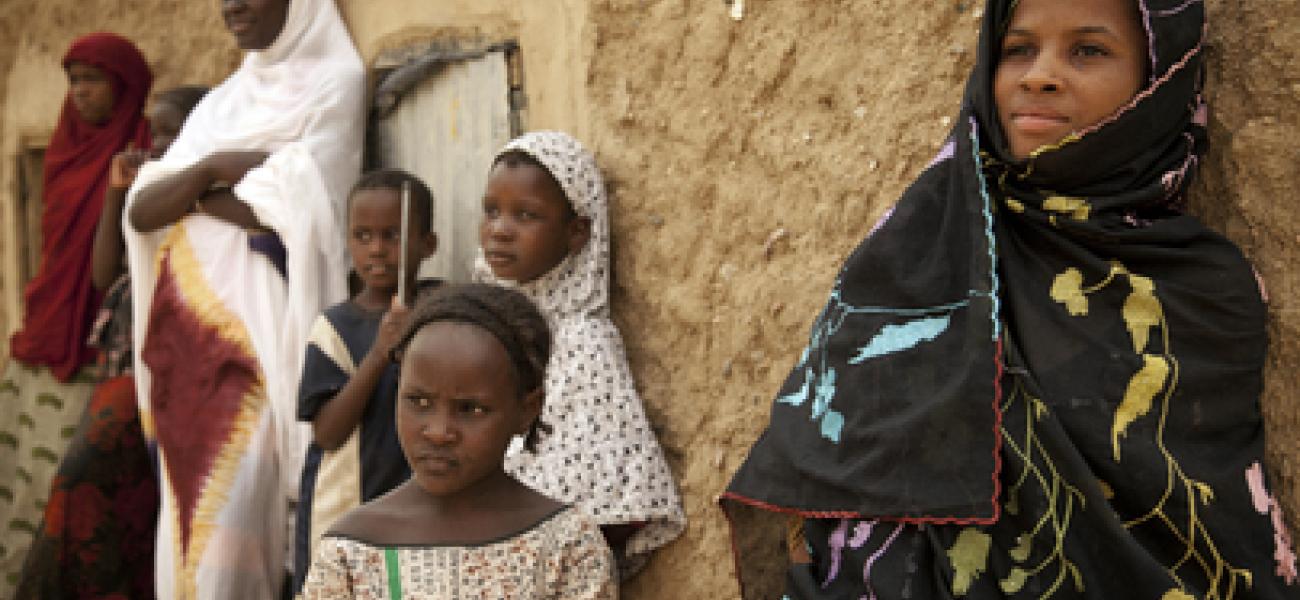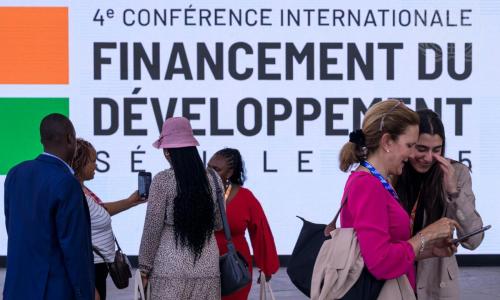GENEVA (4 July 2018) – The authorities in Mali must carry out prompt, detailed and independent investigations into an “alarming” increase in human rights violations, amid a humanitarian emergency to which the world must not close its eyes, says a UN human rights expert.
“I have received direct and indirect accounts of several attacks by community militias, often with the participation of armed groups, resulting in deaths, injuries, destruction or burning of property, and people being forced to leave their homes,” said Alioune Tine, the Independent Expert on the situation of human rights in Mali.
“I am gravely concerned at the continuing deterioration of the security, human rights and humanitarian situation in the centre of the country, as well as in the region of Ménaka,” Mr. Tine added.
“The Government has committed itself to opening criminal investigations, and I strongly recommend it takes concrete action to bring all the perpetrators to justice," said Mr. Tine.
During a field visit to Mopti, the UN expert heard members of civil society and community representatives describe indiscriminate attacks by extremist groups, including Jama'at Nusrat al-Islam Wa al-Muslmeen (JNIM).
“These attacks are carried out in places where there is a very limited State presence, with some areas in the centre having none at all. There is a lack of basic community services and insecurity caused by extremists, armed groups and organized crime, as well as anti-terrorist operations that do not respect international human rights standards,” Mr. Tine said.
“In addition, extremists take advantage of the absence of the State to exploit communities and pit them against each other. It should also be noted that at the end of February 2018, more than 657 schools were forced to close in the central and northern regions, affecting more than 190,000 pupils,” he added.
The Independent Expert was also concerned about serious human rights violations and abuses in Ménaka. Some of the attacks are attributed to armed groups, including the Azawad Salvation Movement (MSA), and the Touareg IMGHAD Self-Defense Group and Allies (GATIA).
Between 26 April and 18 May 2018, 123 people were allegedly murdered in the area, and Mr. Tine is urging the Malian authorities to open judicial investigations into the killings as soon as possible.
“I am also deeply concerned about the increasing number of allegations of serious human rights violations by the Malian armed forces, and I commend the Prime Minister for his statement in May reaffirming that the Government will not tolerate any wrongdoing against civilians,” Mr. Tine added.
“The humanitarian situation in the region is getting worse. An estimated 4.1 million people are in need of food assistance. This year, across the country, the number of people suffering severe acute malnutrition is projected to increase from 162,913 to 274,145. It is also estimated that cases of moderate acute malnutrition will increase from 470,000 to 582,000.
“These figures include 11,232 children aged five and under, who are affected by severe acute malnutrition, and 489,238 children between five and six years old suffering from moderate acute malnutrition. In addition, 45,245 pregnant and breastfeeding women suffer from moderate acute malnutrition.
“This is an emergency to which we cannot close our eyes. Armed groups must respect humanitarian workers and the vital work they do to help those in need of assistance and protection,” Mr. Tine emphasized.
“The forthcoming presidential election [due 29 July 2018] must be truly free, transparent and peaceful, and must meet international standards. The election comes at a turning point in the democratic life of the Malian people. I urge all engaged in politics to ban hate speech and calls to violence,” said Mr. Tine.
The UN Expert placed particular emphasis on the need to respect freedom of peaceful assembly and association, as well as freedom of access to the media throughout the electoral process.
During his visit, Mr. Tine met members of the Government of Mali, representatives of civil society, including victims' associations, and religious and traditional leaders.
The Independent Expert will present his report to the Human Rights Council in March 2019.





